- Home
- Johnny D. Boggs
Return to Red River
Return to Red River Read online
RAVES FOR JOHNNY D. BOGGS
The Despoilers
“Boggs’ historical asides are aided by a narrative style that drives the story along full gallop.”
—True West
“Boggs has once more written a humdinger of a book with wonderful characters, even the villains. The Despoilers tears at one’s heart, which is what really good fiction should do.”
—Roundup
“Johnny D. Boggs tells a crisply powerful story that rings true more than two centuries after the bloody business was done.”
—The Post and Courier (Charleston, SC)
The Lonesome Chisholm Trail
“Boggs is among the best western writers at work today. He writes with depth, flavor, and color, all of which are evident in this rite-of-passage tale . . . Boggs tells the familiar story with authenticity and power.”
—Booklist
“Realistic dialogue, a little humor to lighten up the dramatic tension, a strong plot, and a sense of place that leaves one sneezing from the dust makes for one of Boggs’s best novels.”
—Roundup
Ten and Me
“Informed by accurate detail in almost every regard . . . Boggs’s narrative voice captures the old-fashioned style of the past and reminds a reader of the derring-do of western legends of yesteryear.”
—Publishers Weekly
“This is an entertaining western in the classic mold. The characters possess enough human frailty to be believable, the author includes interesting stuff on the weaponry of the times, and there is enough gunplay to satisfy genre purists.”
—Booklist
Once They Wore the Gray
“Another dramatic story by a finalist for the Spur award of Western Writers of America.”
—Amarillo Globe-News
“Well worth reading, especially as it treats . . . an aspect of the Civil War that is often slighted in the history books.”
—The Shootist
Hannah and the Horseman
“I think Johnny D. Boggs is well on his way to being a major western writer.”
—The Shootist
“This book displays an admirable sense of percolating pace and point-blank prose.”
—The Post and Courier (Charleston, SC)
“Johnny D. Boggs moves his narrative at a lively clip, and it never turns mawkish.”
—Fort Worth Star-Telegram
This Man Colter
“Humor, action, and a wonderful character in Gwen McCarthy make this a delightful read.”
—Roundup
“If you’re into the true wild west, you will enjoy this rugged tale set in west Texas.”
—Rendezvous
Foundation of the Law
“As is to be expected with a Johnny Boggs novel, Foundation of the Law is full of those authentic historical details that make his stories so rich and believable.”
—The Shootist
Law of the Land
“Making bad guys into sympathetic characters is not the easiest feat but Boggs succeeds.”
—Southwest BookViews
“It is an engrossing story, and is told with Boggs’ meticulous attention to authentic detail and believable characterizations. If his characters, including the Kid, don’t look like, sound like, and behave like Boggs describes them, they should have.”
—The Shootist
“Boggs’ unique approach to the Lincoln County War’s legal skirmishing is both eye-opening and memorable.”
—True West
The Big Fifty
“While I was reading The Big Fifty sometimes I would forget ‘my favorite son’ had written it.”
—Jackie Boggs, Johnny’s mother
“Johnny D. Boggs has a keen ability to interlace historically accurate information amid a cast of well-described characters and circumstances.”
—Cowboy Chronicle
“A fine novel that will leave you with the taste of grit in your mouth, and the smell of spoiled buffalo carcasses in your nose.”
—Roundup
Spark on the Prairie
“Brilliant.”
—Roundup
“Stunning.”
—Persimmon Hill
“This . . . continues a long-needed look at those who brought law and order to the frontier—not with six-guns but with law books.”
—True West
“A finely crafted historical novel with fully developed characters playing out their lives against the backdrop of early Texas settlement.”
—American Cowboy
East of the Border
“This is an amusing glimpse at a decidedly different side of some of the Old West’s most famous names.”
—The Denver Post
“We need more books like East of the Border.”
—Roundup
“East of the Border is a fun, lighthearted look at the thespian deep within every cowboy.”
—True West
“Boggs takes the historical facts . . . and gives us a fascinating tale of West meets East.”
—The Shootist
Dark Voyage of the Mittie Stephens
“Delightful entertainment, which combines elements of the traditional western with an Orient Express–style whodunit and a Titanic-like romance.”
—Booklist
“Based on a real disaster aboard the Mittie Stephens, this novel supplies suspense, a love story, betrayal, loyalty, bravery, and deceit wrapped up in a tight plot supported by wonderful, three-dimensional characters and a sense of place that evokes the smell of burning cotton bales and the screams of terrified passengers.”
—Roundup
Purgatoire
“Spur Award–winner Boggs takes a common western plot—old gunslinger looking for redemption—and injects it with genuine humanity. Solid fare from a reliable genre veteran.”
—Booklist
“Boggs is unparalleled in evoking the gritty reality of the Old West, whether it’s the three-dimensionality of the characters or the look, sound and smell of the muddy streets and smoke-filled saloons.”
—The Shootist
“Johnny D. Boggs deftly charts the dual resurrection of a dying Colorado town and a perishing breed of man.”
—True West
Northfield
“Lively and entertaining . . . a vibrant retelling of the Old West’s most notorious and deadly bank robbery.”
—Publishers Weekly
“A fast-moving and strangely poignant tale that never pauses to rest.”
—The Denver Post
“This book stands head and shoulders above others of its kind.”
—Roundup
“The kaleidoscopic effect pays handsome rewards, fueling the action from all vantage points in concise, frenetic bursts that might even leave you feeling a mite poorly for those doomed outlaws.”
—Booklist
Camp Ford
“Boggs’ carefully researched novel boasts meticulously drawn characters and captures in a striking way the amazing changes America underwent during the span of one man’s life. An unusual, very rich western that should attract not only genre readers but also baseball fans and Civil War buffs.”
—Booklist
“As baseball stories go, Camp Ford by Johnny D. Boggs is a home run . . . Think The Longest Yard . . . about baseball and without the glamour . . . Timeless.”
—USA Today Sports Weekly
Killstraight
“It takes a skilled author like Johnny D. Boggs to drive the genre into new literary railheads, as he does in his novel Killstraight.”
—Tucson Weekly
Doubtful Cañon
“Boggs’s quirky western doesn’t take itself too seriously, making this
a fanciful and fun ride into some dangerous business.”
—Publishers Weekly
“Boggs delivers a colorful, clever and arresting tale.”
—Santa Fe New Mexican
“Uses its non-serious side to appeal to younger readers . . . well-flavored tale.”
—The Tombstone Epitaph
Walk Proud, Stand Tall
“The author’s deft hand at characterization and the subtle way he fills in the blanks as the story progresses makes Walk Proud, Stand Tall a tender story hard to resist.”
—The Denver Post
“Boggs deftly balances the bitter and the sweet, the harsh landscapes and the humanity. That he manages it entertainingly is our reward.”
—Santa Fe New Mexican
The Hart Brand
“Though an ocean away, Kidnapped and Treasure Island come to mind when reading this Western; Boggs’ tale nearly matches the quality of those written by Stevenson.”
—True West
“Some consider William Dale Jennings’ The Cowboys the best Western coming-of-age novel. Others would argue it’s All the Pretty Horses by Cormac McCarthy or When the Legends Die by Hal Borland. With The Hart Brand, Boggs stakes his own firm claim.”
—Santa Fe New Mexican
“Boggs, who writes with a finely honed sense of character and a keen eye for detail, combines historical fact with fiction to create a Revolutionary adventure from the vantage point of an average participant.”
—Booklist
“Johnny Boggs has produced another instant page-turner . . . don’t put down the book until you finish it.”
—Tony Hillerman
“The relationships and setting shine: Daniel—striving at once to solve the case and reconnect with Comanche ways—is a complex, winning protagonist.”
—Publishers Weekly
“A rousing story with an emotional and philosophical depth that will surprise readers who don’t expect complexity from a Western.... Explores the clash between white and native cultures . . . fundamentally different and strikingly similar.”
—Booklist
Soldier’s Farewell
“This is not a simple Western . . . Boggs’ familiarity with the landscape . . . puts the reader right into New Mexico and particularly through the rugged landscape along the Río Chama. And while this may seem to be a fairly traditional Western, the conclusion is anything but. Another good read.”
—The Roundup
“Boggs . . . showcases his talent for period detail, atmosphere, complex characters, and the ability to evoke a stark landscape.”
—Booklist
“Ultimately, Soldier’s Farewell is a tale of two brothers falling far short of what their father expects of them, and what they expect of each other. This is another fine novel by one of today’s better writers of Westerns.”
—Tucson Weekly
RETURN TO RED RIVER
JOHNNY D. BOGGS
PINNACLE BOOKS
Kensington Publishing Corp.
www.kensingtonbooks.com
All copyrighted material within is Attributor Protected.
Table of Contents
RAVES FOR JOHNNY D. BOGGS
Title Page
Dedication
BOOK I
CHAPTER ONE
CHAPTER TWO
CHAPTER THREE
CHAPTER FOUR
CHAPTER FIVE
CHAPTER SIX
CHAPTER SEVEN
BOOK II
CHAPTER EIGHT
CHAPTER NINE
CHAPTER TEN
CHAPTER ELEVEN
CHAPTER TWELVE
CHAPTER THIRTEEN
CHAPTER FOURTEEN
CHAPTER FIFTEEN
CHAPTER SIXTEEN
CHAPTER SEVENTEEN
BOOK III
CHAPTER EIGHTEEN
CHAPTER NINETEEN
CHAPTER TWENTY
CHAPTER TWENTY-ONE
CHAPTER TWENTY-TWO
CHAPTER TWENTY-THREE
CHAPTER TWENTY-FOUR
CHAPTER TWENTY-FIVE
CHAPTER TWENTY-SIX
CHAPTER TWENTY-SEVEN
CHAPTER TWENTY-EIGHT
CHAPTER TWENTY-NINE
CHAPTER THIRTY
CHAPTER THIRTY-ONE
CHAPTER THIRTY-TWO
CHAPTER THIRTY-THREE
CHAPTER THIRTY-FOUR
CHAPTER THIRTY-FIVE
CHAPTER THIRTY-SIX
CHAPTER THIRTY-SEVEN
CHAPTER THIRTY-EIGHT
CHAPTER THIRTY-NINE
CHAPTER FORTY
CHAPTER FORTY-ONE
CHAPTER FORTY-TWO
CHAPTER FORTY-THREE
CHAPTER FORTY-FOUR
HERE LIES
AUTHOR’S NOTE
Copyright Page
In memory of my good friend
COTTON SMITH
1939–2015
Who loved a good horse, a good story, and “Red River”
BOOK I
CHAPTER ONE
Janeen Yankowski had named Mathew Garth’s zebra dun. At least, when naming the horse, Mathew had used the word the cook and servant frequently said. Debil. It meant “idiot,” only a lot more bad mannered—if you understood Polish.
“Debil,” Mathew whispered as he swung off the gelding. He meant himself, however, and not the dun.
Spurs, boots, and half of his leather chaps disappeared into the snow, and Mathew trudged through the freezing whiteness until he could wrap stiff reins around the top string of barbed wire.
Debil. Idiot. Crazy cattleman. Damned fool. He had never cared a whit for the devil’s rope. By thunder, Mathew had always despised barbed wire. He had cursed Joseph F. Glidden when that DeKalb, Illinois, inventor had gotten his first patent for the latest in modern-day improvements: sharp-barbed steel fencing wire. Mathew had spoken out against the use of such wire to anyone who would listen in saloons in southwest Texas, to other cattlemen in San Antonio, to shipping-yard owners in Fort Worth, even to state legislators in Austin. Fencing in the Texas ranges would ruin the cattle industry, he had argued. Yet here he stood in front of an endless stretch of a barbed-wire drift fence. On his range.
And Mathew Garth had let it happen.
Moving down the line of drift fence, plowing through snow up to his thighs exhausted him, and Mathew, though now in middle age, remained lean, leathery, and tougher than mesquite. Each breath burned his lungs. He figured the temperature to be in the teens—warmer than last week.
Most folks thought it never got cold in this part of Texas, that it never snowed down here. He recalled something Groot, the mustached, old cook Mathew had known almost as far back as he could remember, had told him in January, when the winter storms had first hit.
“Well, Mathew, it’s finally happened. Hell done frozed over.”
With a grunt, Mathew leaned against the icy drift and began scraping away at the frozen snow, glad to be wearing gloves. Even with the lined deerskin, the ice felt like razors on his fingers and palms. He pushed away the ice till he saw the stiff brindle hide, then carved a path down. It took him several minutes before he found the brand. After scraping away more ice, he leaned closer for a better look.
Mathew bit his chapped lips and swore.
The brand was the Rafter I, more commonly known as the Turkey Track.
Climbing over the dead steer, Mathew began removing more snow. The Turkey Track ranch lay way up in the Texas Panhandle, almost to the no-man’s-land, far north of the empire that Thomas Dunson had chiseled into this raw country and that Mathew Garth had kept alive. These cattle had drifted in the blizzards for five hundred miles.
The next brand troubled Mathew even more. It was the Circle 43. Mathew had never heard of it. Another carcass also held the Circle 43. The last steer Mathew uncovered had been marked with another brand he didn’t know. Not that Mathew knew every brand in the state of Texas, but he forged those into his memory. When he got back to the ranch, he w
ould look in the latest Brand Book of Texas.
With another curse, he straightened and stared at the big emptiness that stretched on forever. Gray clouds dimmed the day. Mathew couldn’t remember the last time he had even seen the sun, but at least it wasn’t snowing. Just overcast, with a biting wind tearing through his coat and the muffler wrapped over his slouch hat. Dark as it was, he could still make out more mounds that lined the drift fence. Some of those appeared higher than where he stood now, and under those snowbanks, Mathew knew, lay dead cattle. Some of them his. Most from ranches north, maybe into Kansas, perhaps even Nebraska.
They had drifted in the blizzards, moving with the wind, until they reached this drift fence. Here they had stopped, unable to move through the barbed wire, and had frozen to death.
Hundreds of them.
He trudged again through the snow, following the ditch he had blazed, until he reached the zebra dun. The leather reins seemed frozen harder, so brittle that he would not have been surprised had the ends broken off when he unwrapped them from the top strand. Mathew had to use a gloved hand to pull up his stiff leg and slip the toe of his boot into the stirrup before he managed to climb into the saddle with a grunt. His butt felt cold. But at least he still had feeling in his feet, his toes.
“Come on, Debil.” He neck-reined the gelding and turned back north, toward the ranch, riding into the mocking, brutal wind. Both horse and rider kept their heads down.
* * *
For years, ranchers had cursed barbed wire. Such contraptions had been invented for farmers—to keep longhorns from trampling over their crops—and Mathew Garth, like most of his ranching neighbors, loathed the damned thing. Barbs and thin, steel wire had lamed many a good horse, torn flesh off plenty of Texas beef, even crippled or at least scarred up drovers by the score.

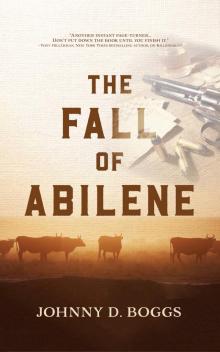 The Fall of Abilene
The Fall of Abilene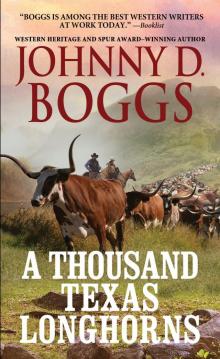 A Thousand Texas Longhorns
A Thousand Texas Longhorns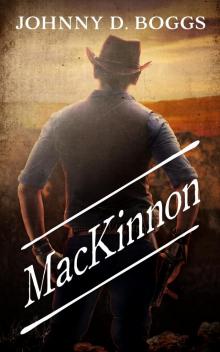 MacKinnon
MacKinnon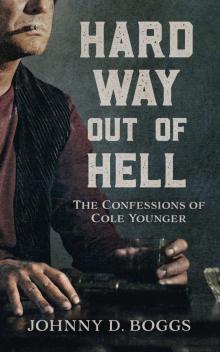 Hard Way Out of Hell
Hard Way Out of Hell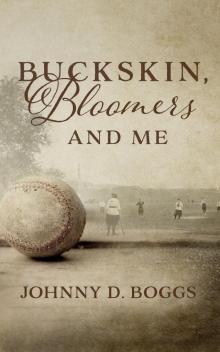 Buckskin, Bloomers, and Me
Buckskin, Bloomers, and Me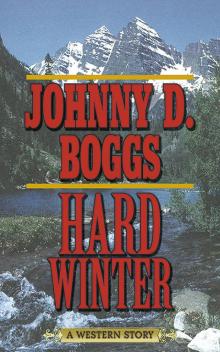 Hard Winter
Hard Winter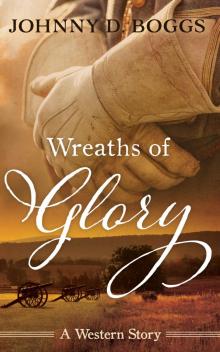 Wreaths of Glory
Wreaths of Glory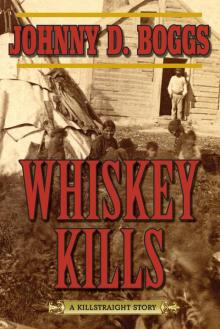 Whiskey Kills
Whiskey Kills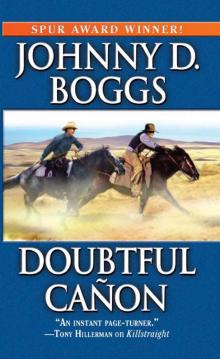 Doubtful Canon
Doubtful Canon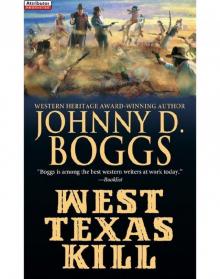 West Texas Kill
West Texas Kill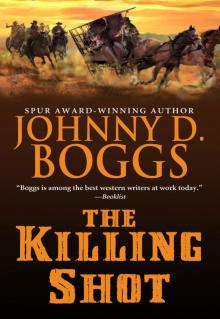 The Killing Shot
The Killing Shot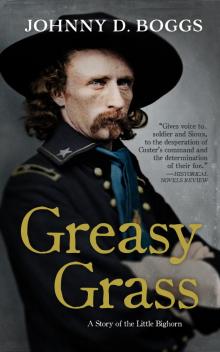 Greasy Grass
Greasy Grass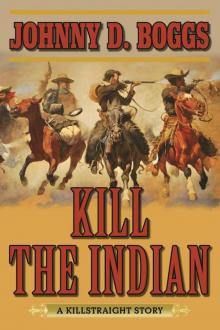 Kill the Indian
Kill the Indian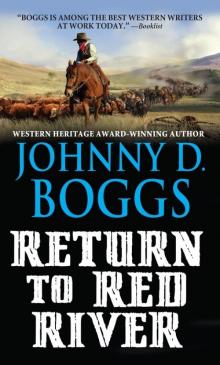 Return to Red River
Return to Red River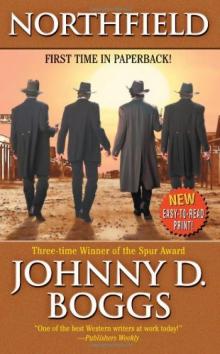 Northfield
Northfield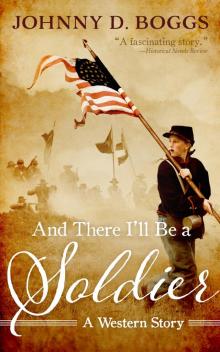 And There I’ll Be a Soldier
And There I’ll Be a Soldier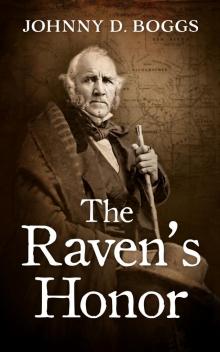 The Raven's Honor
The Raven's Honor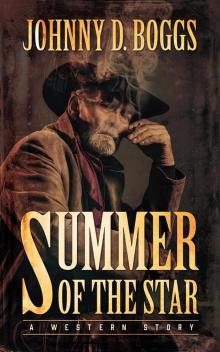 Summer of the Star
Summer of the Star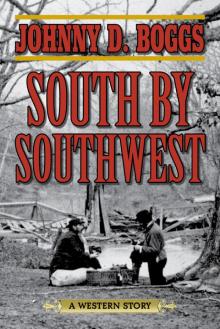 South by Southwest
South by Southwest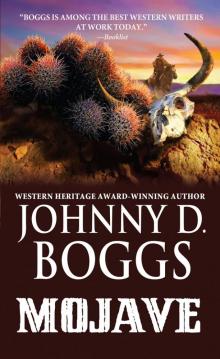 Mojave
Mojave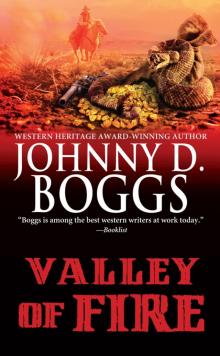 Valley of Fire
Valley of Fire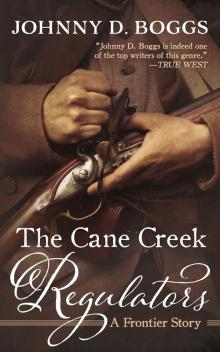 The Cane Creek Regulators
The Cane Creek Regulators